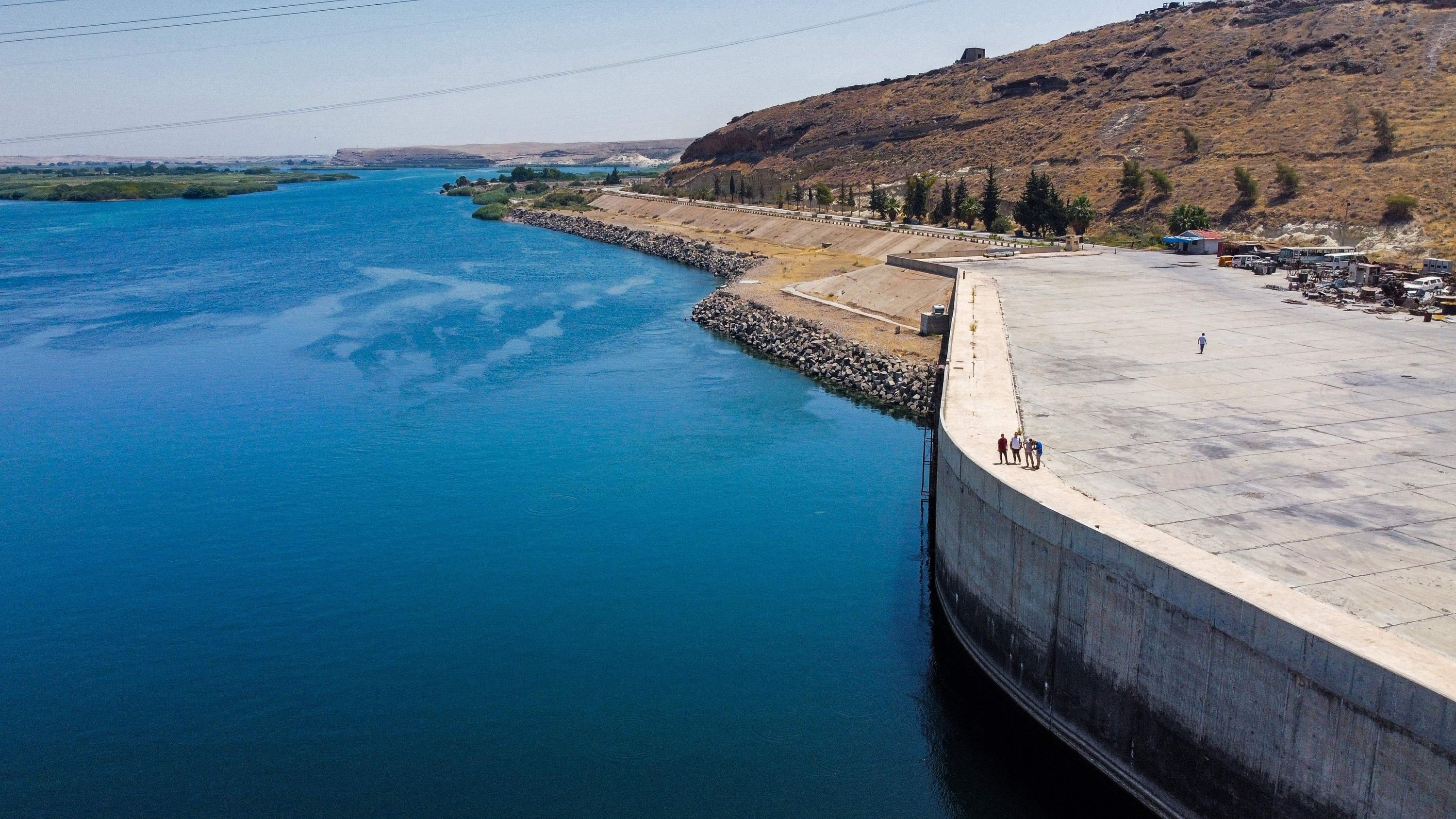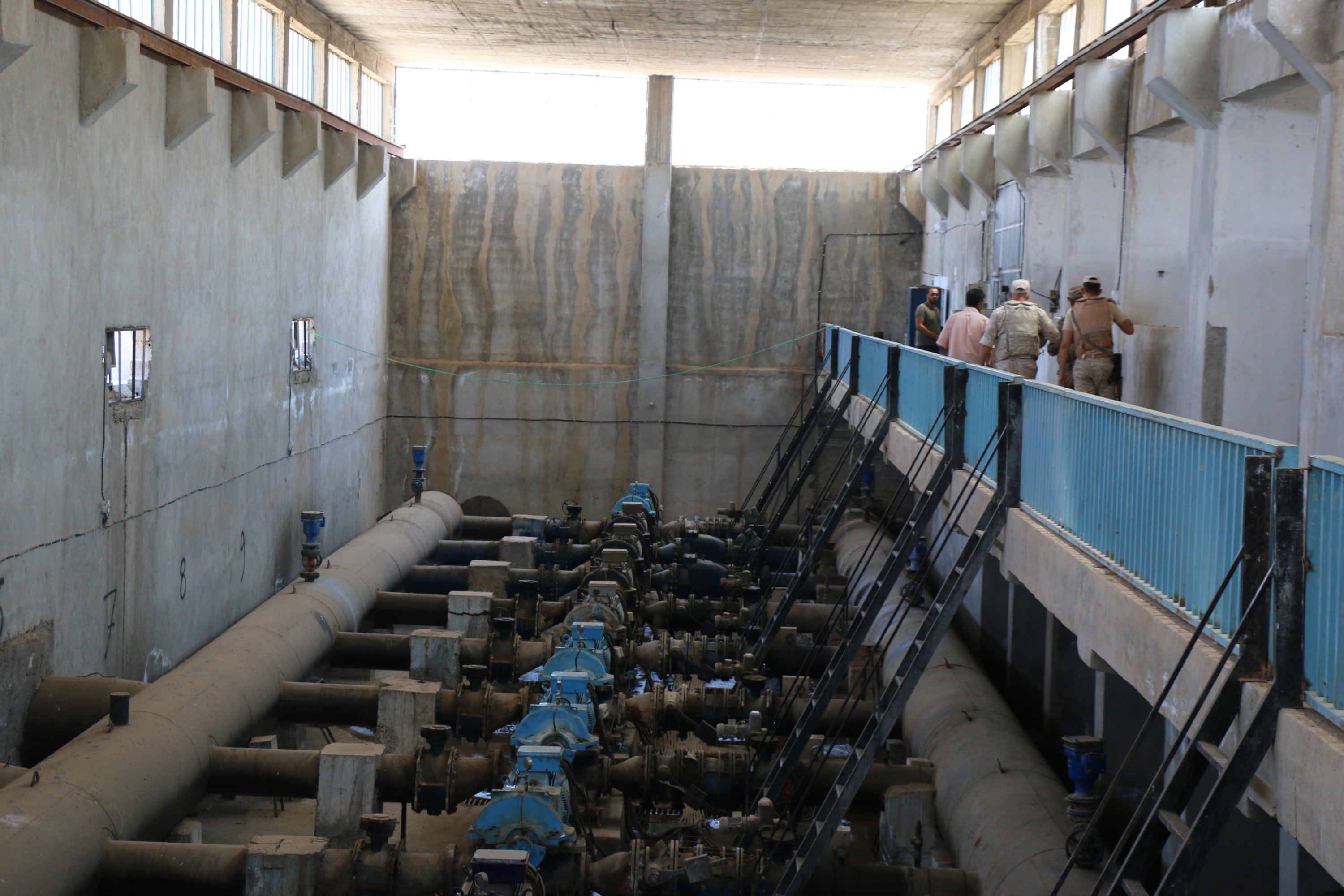In July 2021, almost 50% of Syrian families said they were eating inadequate amounts of food, the United Nations World Food Programme (WFP) said Sunday.
“This is a 15% increase in the last year alone. Rising food prices are adding another layer of hardship on families who are being pushed beyond their limits,” WFP wrote on Twitter.
“Syrian parents are now making difficult decisions about how they will feed their children. Almost 1/2 of parents say they are cutting meals so their children can eat,” reported the WFP.
After nearly a 10-year conflict that killed some 400,000 and displaced half the country’s population, Syria’s economy has been badly harmed by the war as well as by widespread corruption, Western sanctions and a severe economic and financial crisis in neighboring Lebanon.
The local currency crashed in recent months, making it more difficult for many Syrians to buy food and the spread of COVID-19 in the war-torn country has worsened the situation.
Families have been forced to adopt desperate measures from cutting meals and reducing portions to selling assets and going deeper into debt.
According to the U.N., an estimated 12.4 million Syrians are food insecure, amounting to nearly 60% of the population who do not know what they will eat tomorrow, he said, adding that this is an increase of 4.5 million people in only one year.
For years, the Bashar Assad regime has ignored the needs and safety of the Syrian people, only eyeing further territorial gains and crushing the opposition. With this aim, the regime has bombed civilian facilities such as schools, hospitals and residential areas, displacing almost half the country's population.
Although Turkish institutions, the U.N. and international humanitarian organizations continue their efforts to provide humanitarian aid, there are still thousands more who need urgent assistance from the international community.
Euphrates drying up
Amid an ongoing civil war and increasing economic meltdown, Syrians, especially in the northeast, also face climate challenges as hot weather accelerates the drying up of the Euphrates river.
Syria's longest river used to flow by his olive grove, but today Khaled al-Khamees says it has receded into the distance, parching his trees and leaving his family with hardly a drop to drink.
"It's as if we were in the desert," said the 50-year-old farmer, standing on what last year was the Euphrates riverbed.
"We're thinking of leaving because there's no water left to drink or irrigate the trees."

Aid groups and engineers are warning of a looming humanitarian disaster in northeast Syria, where waning river flow is compounding woes after a decade of war.
As drought grips the Mediterranean region, a U.N. climate change report this month found human influence had almost definitely increased the frequency of simultaneous heatwaves and droughts worldwide.
In times of rain, the Euphrates gushes into northern Syria through the Turkish border and flows diagonally across the war-torn country towards Iraq.
Along its way, it irrigates swathes of land in Syria's breadbasket and runs through three hydroelectric dams that provide power and drinking water to millions.
But over the past eight months, the river has contracted to a sliver, sucking precious water out of reservoirs and increasing the risk of dam turbines grinding to a halt.
Aid groups say drought conditions have already destroyed large swathes of rain-fed crops in Syria, a country where 60% of people already struggle to put food on the table.
The United Nations says barley production could drop by 1.2 million tons this year, making animal feed more scarce.
Allouk water station
In order to fight increasing water scarcity, Turkey and Russia have recently agreed to resolve the Allouk water station problem caused by the PKK terrorist organization’s Syrian wing, the YPG, in Syria's border town Ras al-Ain.

The water station, vital in transferring water to northeastern Hassakeh province and rural areas, has been experiencing interruptions caused by the terrorist group. The station operates on power from the electric power station in Dirbasiya, occupied by the YPG.
Turkish and Russian military delegations have been holding talks on solving the problem. They also visited the station in the Operation Peace Spring area and the Mabrouk electricity power station to investigate the reason behind the interruptions in the water supply.
According to the U.N. children's agency UNICEF, the pumping station supplies water to around 460,000 people, including residents of Hassakeh city and the overcrowded al-Hol camp, which is home to thousands of relatives of Daesh fighters.
The Turkish Foreign Ministry last month in a statement said that "the terrorist organization PKK/PYD and the regime deliberately obstruct the electricity to the station and the region. These power cuts disable the functioning of the station that provides water and aggravates the humanitarian conditions in the region."
The operation area had experienced five months of electricity shortages due to the YPG, causing severe problems for civilians working in agriculture. Due to the lack of water, the production of barley, wheat, cumin and other legumes were hit hard, causing an increase in food prices.
The Assad regime and the YPG have frequently spread anti-Turkey propaganda with false claims about water shortages. The terrorists, in an attempt to incite hostility toward Turkey, spread a rumor that the country had cut the water supply to Hassakeh province to abet the spread of the coronavirus in the region.
50% of Syrians eat inadequately as food insecurity increases: UN | Daily Sabah - Daily Sabah
Read More

No comments:
Post a Comment